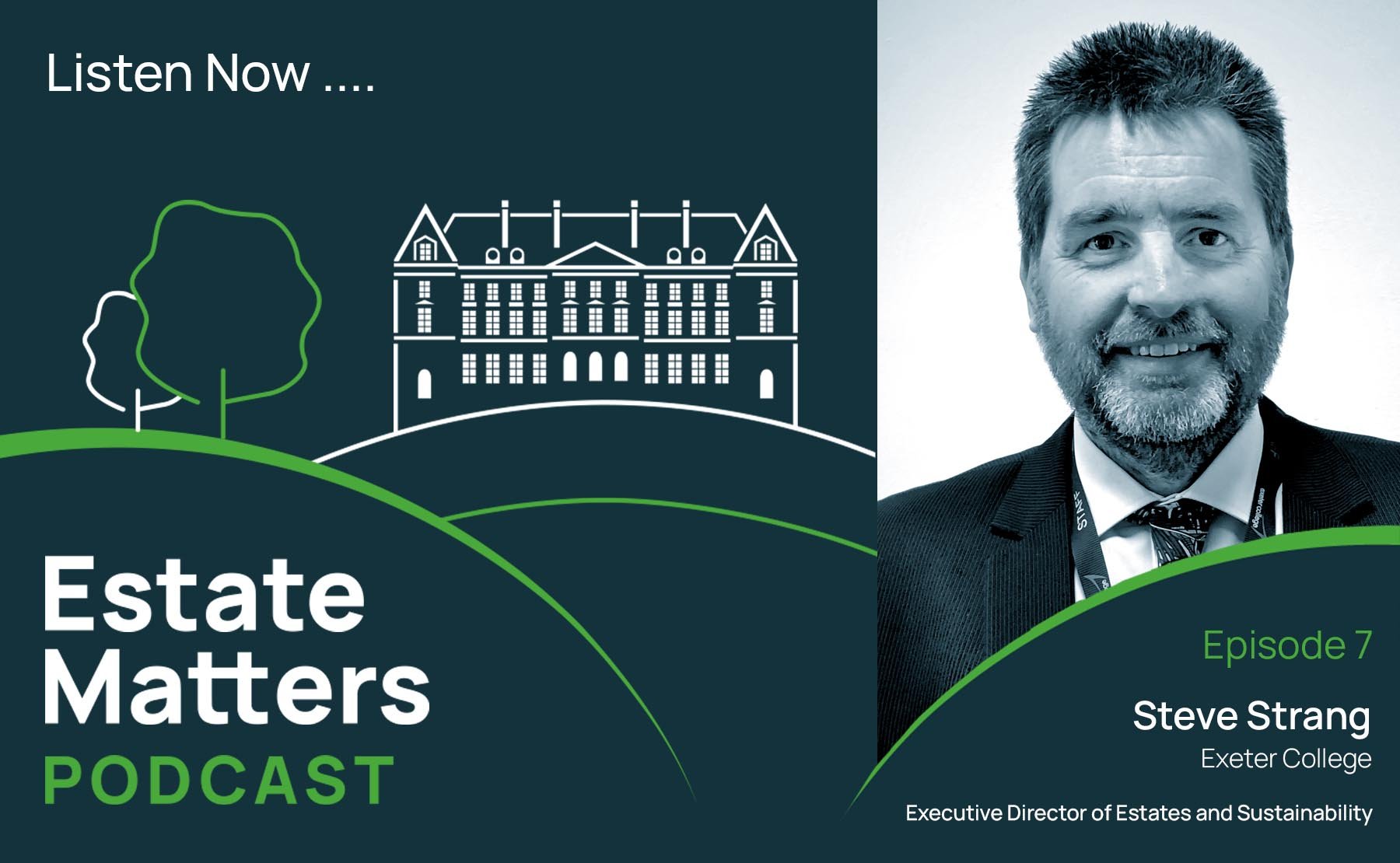Estate Matters Episode 7: Steve Strang, Exeter College - The crucial role of communication in urban education masterplanning
The challenge of meeting the development needs of a college of further education is the subject of our new Estate Matters podcast, featuring the Executive Director of Estates and Sustainability at Exeter College, Steve Strang.
Steve tells podcast host Anna Byles that the key to responding to the growth of the college - rated Outstanding by Ofsted - has been through the creation of a 20-year masterplan linked to the college curriculum and strategy.
With an estate spread across 13-sites and a total of 25 buildings, many of them in sensitive urban locations, Steve says the college understands the need to engage closely with neighbours and other stakeholders before embarking on development projects – and the value of using professional communications experts to help with that engagement.
Steve, who trained as an electronics engineer and formerly worked in the civil service for the UK’s Defence Estates, travelling all over the world, joined Exeter College 18 years ago and has helped oversee significant development.
It has been driven by close cooperation with Devon County Council and Exeter City Council who provide demographics data on the likely number of potential new students. Employment and education trends are studied to help the college work out its curriculum, which in turn influences the kinds of buildings needed in the future. Steve says:
“Our 20-year masterplan seeks to set out our vision for the Estate across all of our sites…it’s quite a large estate and it is important we have a coherent and well thought out approach as to how we manage those buildings.”
Because of the proximity of treasured listed buildings in Exeter city centre, plus residential and business neighbours close by, putting up new structures or altering existing college buildings requires great sensitivity. KOR Communications has worked with Steve on early engagement with stakeholders and the local authority to help manage the planning process.
Steve praised the value of professional communications advice to help develop the college estate, and the support of KOR Communications Senior Consultant on Public Affairs, Andrew Howard, who joins Anna on the podcast. Steve said:
“I think from my perspective, having Andrew and the team from KOR on board when we first embarked on the masterplan was really important. I know the college estate and the college buildings and colleagues know the curriculum inside out, but having that external vision of who we might think of as our stakeholders and help guide us in the ways to communicate with people…that is very important.”
Andrew underlined the value the college brings to Exeter, not just as a place of education, but for the economic, cultural, sporting and social benefits it creates across the city, for people of all ages. He said recognising, demonstrating, and communicating that value is an important aspect of the college’s engagement strategy, helping to ensure that when proposals are put forward, local people and the wider community know they can trust what is being planned and how they might benefit.
“You build up a rapport with neighbours, rather than someone else building barriers,” Andrew said of the engagement process. “When people understand why you are doing something they are less concerned with the minor nitty gritty aspects that often cause the biggest angst.”
Steve says Exeter College has received valuable financial support for its work. Demonstrating engagement with its stakeholders over its masterplan contributed to the college being awarded grant applications. “It’s something we’ve been quite successful at navigating over the years,” he says. “We’re a growing college, we’re Ofsted outstanding… that allowed us to access some funding and that has allowed us to invest.”
STEVE’S THREE KEY MESSAGES for MASTERPLANNING:
- Take the time to put together the team working on the plan, from architects to planners, lawyers to communications specialists, make sure you have the right people in place.
- Engage early with your community and wider stakeholders. And be ready to listen and adapt to what they tell you when you outline your plans.
- Accept that the plan is never truly finished. Always be ready to go back and make changes to respond to changing circumstances.

